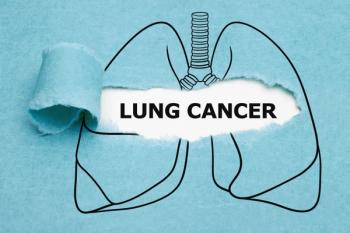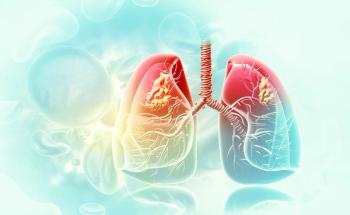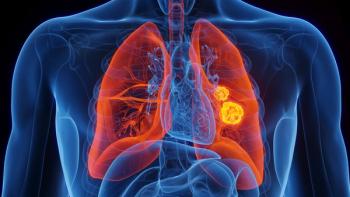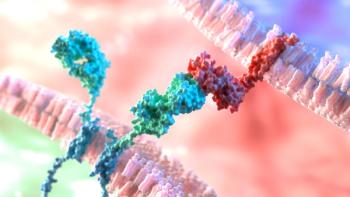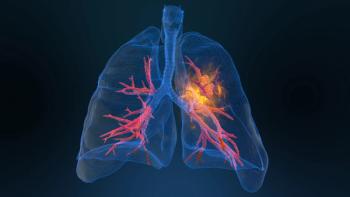
COVID-19 Vaccine Considerations for the Immunocompromised
FDA fact sheets on coronavirus disease 2019 (COVID-19) vaccines provide guidelines for special patient populations, including the immunocompromised.
The FDA granted Emergency Use Authorization (EUA) to 2 vaccines for coronavirus disease 2019 (COVID-19): the Pfizer-BioNTech COVID-19 vaccine on December 11, 2020; and the Moderna COVID-19 vaccine on December 18, 2020.1,2
The Pfizer-BioNTech COVID-19 vaccine gained EUA based on data from an ongoing phase 1/2/3 trial in approximately 44,000 participants randomized to receive either the Pfizer-BioNTech COVID‑19 Vaccine or a saline placebo. The Moderna vaccine authorization was based on an ongoing phase 3 trial of about 30,000 participants randomized to receive Moderna COVID‑19 Vaccine or a saline placebo.
Both vaccines are mRNA-based vaccines that encode the prefusion spike glycoprotein of SARS-CoV-2, the virus that causes COVID-19. The only contraindication to vaccination for COVID-19 is a history of severe allergic reaction to any of the components of an mRNA COVID-19 vaccine.
The authorization of vaccines for COVID-19 has been extremely fast, relative to typical FDA approvals, leaving many with questions about the vaccines and which populations should be given special consideration before vaccination. The FDA has since provided guidelines for both vaccines, including administration to special populations.
Both vaccines are authorized for use in geriatric patients based on their respective clinical trial results.3,4 While pregnant women were not included in clinical trials, Moderna has a registry of pregnant women who were given the vaccine post-authorization to monitor outcomes.
Of special interest are the
Overall, cancer patients had a higher risk of death (odds ratio [OR], 2.34; 95% CI, 1.15-4.77; P = .03), ICU admission (OR, 2.84; 95% CI, 1.59-5.08]; P <.01), and at least 1 severe complication (OR, 2.79, 95% CI; 1.74-4.41; P <.01) from COVID-19. The most common cancer types in those patients were lung, gastrointestinal, breast, thyroid, and hematological malignancies. But lung and blood cancer patients were worst off, with death rates of 18.18% and 33.33%, respectively.
It stands to reason that those patients should be some of the first to receive a vaccine for COVID-19. But is the vaccine safe in those populations?
Where both vaccines are concerned, the sole FDA warning for immunocompromised patients, including those undergoing immunosuppressant therapy, is the potential for diminished response to the vaccine. The CDC notes that immunocompromised patients may receive the vaccines so long as they have no contraindications to vaccination, but that they should be counseled about the unknown safety profiles of the vaccines in immunocompromised populations.6
References
1. Pfizer-BioNTech COVID-19 Vaccine. Food and Drug Administration. Updated December 18, 2020. Accessed December 21, 2020. https://www.fda.gov/emergency-preparedness-and-response/coronavirus-disease-2019-covid-19/pfizer-biontech-covid-19-vaccine
2. Moderna COVID-19 Vaccine. Food and Drug Administration. Updated December 21, 2020. Accessed December 21, 2020. https://www.fda.gov/emergency-preparedness-and-response/coronavirus-disease-2019-covid-19/moderna-covid-19-vaccine
3. Pfizer-BioNTech COVID-19 Vaccine EUA Fact Sheet for Healthcare Providers. Food and Drug Administration. Revised December 2020. Accessed December 21, 2020.
4. Moderna COVID-19 Vaccine EUA Fact Sheet for Healthcare Providers. Food and Drug Administration. Revised December 2020. Accessed December 21, 2020.
5. Dai M, Lie D, Liu M, et al. Patients with cancer appear more vulnerable to SARS-COV-2: a multi-center study during the COVID-19 outbreak. Cancer Discov. aacr.ent.box.com/s/2mh5713e6irjvcz6hb4c6y72bu1pljxq. Published April 27, 2020. Accessed April 28, 2020.
6. Interim Clinical Considerations for Use of mRNA COVID-19 Vaccines Currently Authorized in the United States. Centers for Disease Control and Prevention. Accessed December 21, 2020. https://www.cdc.gov/vaccines/covid-19/info-by-product/clinical-considerations.html?CDC_AA_refVal=https%3A%2F%2Fwww.cdc.gov%2Fvaccines%2Fcovid-19%2Finfo-by-product%2Fpfizer%2Fclinical-considerations.html#underlying-conditions
Newsletter
Stay ahead of policy, cost, and value—subscribe to AJMC for expert insights at the intersection of clinical care and health economics.
